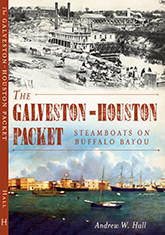How — and Why — Real Confederates Endorsed Slave Pensions
In another forum recently, there was a lively discussion going on about the historical basis for present-day claims about black Confederates. One of the topics, naturally, was the pensions that some states awarded to African American men who had served as body servants, cooks, and in other roles as personal attendants to white soldiers. One person asked why it was that the former states of the Confederacy were so late in authorizing pensions for these men, or (in some cases) did not authorize them at all. It’s a good question, that I’m sure defies a single, simple answer.
But in the process of looking for something else, I came across this editorial in the October 1913 issue of the Confederate Veteran, calling on the states to provide pensions for a “a particular class of old slaves.” I’m putting it after the jump, because it’s peppered with racial slurs and stereotypes that are hurtful to modern ears, but were wholly unremarkable for that time, place and publication. So let me apologize in advance for the language, and hope that my readers will appreciate the necessity of repeating it here, in full and in proper context, in order to be crystal clear about the author’s meaning and intent. There are times when polite paraphrasing just doesn’t do the job.
As you read this editorial, keep in mind that the Confederate Veteran, by its own masthead, officially represented (1) the United Confederate Veterans, (2) the United Daughters of the Confederacy, (3) the Sons of Veterans (i.e., the SCV), and other groups. The magazine was mostly written by Confederate veterans and their families, to be read by Confederate veterans and their families. While the editorial may not reflect formal UCV/UDC/SCV policy, its appearance in the magazine does indicate that its perspective is one that would be shared by the magazine’s readership, and its call for action would reach a willing and receptive audience.
In short, if you want to know how real Confederate veterans viewed the purpose and necessity of pensions for former slaves, start here:
![]()
PENSION SLAVES WHO SERVED IN THE WAR.
The South loved and revered the old darkies who formerly were servants in the homes and on the plantations of the white people. They will ever occupy a sacred place in the memory of the people of the Old South and their sons. If people ever deserved to be so revered, it is the old darkies. The people of the South should, do something material for the benefit of a particular class of old slaves. The servants who faithfully followed their young masters to the front during the War of the States and served as loyally as if they had been enlisted white men, doing their particular duties well and never tiring, should be allowed to draw pensions paid by the white people of the Southern States. Behold the picture: Black, ignorant, yet faithful, the servant of the sixties, at the call of his master, was quick to leave the old plantation and go to the front to bear the burdens of the master, forage for him, and nurse him while sick or wounded, and in death lifted the body of his beloved master, bore it from the battle field, and took it back to the old plantation and family burying ground. The negro slave delighted in serving his white folks. Consider the irony of the situation. The darky knew that the first consequence of the war in case of victory for the enemy would be bis immediate “freedom.” He knew it be- cause his master told him so. But no soldier in gray ever fought with greater vengeance than was felt in the heart of the black man with him. Administering to his every want in sickness and in health, seeking food for bis hungry body, and bearing him home in death — in every way the servant was loyal and faithful to his master. He cannot live much longer, and we should pension him. There are not so many old negroes who saw this kind of service in the war that the expense would be heavy. We are sure that not a normal human bring in all the South would begrudge the old darkies who served their masters at the front a pension commensurate with their great services and the capacity of the State to pay. There has been organized in Birmingham an Ex-Slaves’ Association with a total membership of 365 old darkies. The organization will be extended finally over the entire South. An ex-slaves’ home is one of the objectives of the Birmingham organization. Plans are already under way for this institution, which will be unique in many respects. The plan of the former slaves is to return to ante-bellum simplicity in the manner of living. The home is to be equipped with the old-time loom, spinning wheel, and carders. Pots and ovens with the ash cake will take the place of modern cooking utensils and baker’s bread. The idea is to be inaugurated in an old-time mammies’ dinner to be given at Birmingham some time this summer. The dinner will be cooked in the old way by old time mammies. Only negroes of both sexes born before 1860 are eligible for membership in the Ex-Slaves’ Association. This move should enlist the hearty support of all our white people. [The foregoing is almost literally an editorial in the Montgomery Advertiser. It deserves consideration. Our people are all right. They concur in the sentiment and would approve action by State legislation with such unanimity that if anybody objected be would be ashamed to say so. But we have been talking about this thing for a generation, always approving but never acting on the subject. By this prolonged delay of showing appreciation, the records will not convince other generations that the people who should act on this subject were sincere, yet they truly are. Such action is as sacred a duty as can be conceived by Southern people. It is right and politic, then, next to the woman’s monument, that there should be a statue of a typical slave in every Southern city. A duplicate would suffice, and by cooperation much economy would thereby be exercised. Let Camps and Chapters take up the subject now.]Present-day advocates of the black Confederate narrative often point triumphantly to pensions awarded by former Confederate states to elderly African American men as evidence that those men were thus officially recognized as serving the Confederate nation and cause. Real Confederate veterans, as indicated by this editorial, clearly saw those pensions in an entirely different light, and serving an entirely different purpose. There’s no mention in this piece about loyalty and commitment to the Confederate cause, or standing foursquare, shoulder-to-shoulder with their white brothers in defending hearth and home against the Yankee invader, or any of those vague, patriotic-sounding cliches that have become the unchallenged currency of the modern black Confederate narrative. Real Confederates would have laughed out loud at those notions. No, the arguments made in this Confederate Veteran editorial are all about recognizing personal loyalty and service to slaveowners. Period, full stop. First and last, it’s about rewarding the black man who, according to the author, “delighted in serving his white folks.”
Real Confederates, unlike their make-believe Confederate descendants, at least had the honesty to say what they meant, and mean what they said.
Now let me be clear — these men do need to be recognized by history, and honored for who they were and what they experienced. But it does no honor to them, or anyone else, figuratively to wrap them in the Southern Cross and preach bold platitudes about “black Southern loyalists” to the strains of “Dixie,” playing in the background. Such actions, frankly, dishonor them, because it hijacks their identities for a modern and historically dishonest purpose. Kevin is right — we should honor these men for what they survived, not for some happy fantasy that serves only to distract from the hard reality of their lives.
___________






I would love to know more about that Ex-Slaves Association. There’s a story buried there, I’m sure.
You gotta wonder about the mindset of the white folks creating the “Ex-Slaves Home,” fitted out in the form of plantation slave quarters from 50+ years before, without all that newfangled modernity of the early 20th century.
Who, exactly, is supposed to be happy with this arrangement?
Definitely a topic worth researching. That has thesis written all over it.
Just remember — nothing happens in a vacuum, culturally or politically. So given that pensions fro African Americans came long after those for white veterans — if they were approved at all — the way I’d frame the question is, “what factors came together at that moment that made those pensions suddenly both practical and desirable, as policy.”
Cogitate on it a while.
Excellent write up Andy. My class got on the topic of “Black Confederates” when I was teaching a unit on the Civil War last year. The statement you and Kevin provided about the loss of individual identity fits my sentiments exactly.
Thanks. Just remember — nothing happens in a vacuum, culturally or politically. So given that pensions for African Americans came long after those for white veterans — if they were approved at all — the way I’d frame the question is, “why did this happen when it did? What factors came together at that moment that made those pensions suddenly both practical and desirable, as policy.”
Cogitate on it a while.
I recently came across information regarding South Carolina pensions paid to Confederate veterans and found that the state apparently paid Thomas Tobe, a black resident of Newberry County, S.C., a pension as early as 1899.
This was 20 years earlier than any previous record I’d found that showing Tobe had received compensation for his work during the war. The entry can be found on page 172 and page 185 of the 1900 Report of the South Carolina Comptroller General’s Office.
The link is here: http://books.google.com/books?id=HQgrAAAAYAAJ&pg=RA3-PA172&lpg=RA3-PA172&dq=%22Tobe,+Thos.%22&source=bl&ots=hiGUn0CTwr&sig=DybaU-oJc4pFC5-IWrZjpESEAtc&hl=en&sa=X&ei=fuzYT83XEYKk8QSusoDGAw&ved=0CEwQ6AEwAQ#v=onepage&q=%22Tobe%2C%20Thos.%22&f=false
Now I’m assuming that the Thomas Tobe referred to in the above work is the same African-American individual who received a pension from Newberry County in 1919 for his work with Holcombe’s Legion, not, say, a white man who happened to have the same name. However, given the scanty information available here, I’m not positive.
That’s really interesting. I presume it’s the same man.
Do you happen to know what a “Class C, No. 2” pension is? I only had time for quick skim of the report and didn’t see an explanation.Wait, here it is:
Tobe’s 1919 application is online at the SC archives, but not the earlier one. That would be useful to see.
I don’t know if a hard copy can be found at the state Archives Department. I’ll have to call out there and see if they have anything. I believe Newberry County also compiled pension records for the year 1899, at least according to research I’ve been doing lately.
And I can’t imagine that the state of South Carolina and Newberry County would be compiling separate records, so perhaps the county historical society or a similar group has this information.
“The negro slave delighted in serving his white folks.”
The myth of the “happy darky” lives on !
Hi Andy. I touch on this topic in my book on black Civil War veterans. My basic interpretation here was Confederate veterans promoted pensions for “faithful slaves,” as they served the Lost Cause myth of the Civil War and the memory needs of former Confederates. Just as veterans homes created “living monuments” for the public, Confederate pensions for faithful slaves who has served as servants, etc. (but not soldiers) with the Confederate army encouraged such African Americans to be living monuments for what the Confederate veterans’ community wanted to believe about blacks and the Civil War (to the extent they deigned to think about such matters). It wasn’t just pensions that served as encouragement. These “faithful slaves” would be invited to Confederate veterans reunions, where they got a lot of emotional affirmation from the white southern faithful and often had money stuffed in their pockets.
Donald-Did you find any evidence of any money being paid out post-war by a Southern state and/or local government to the thousands of then-enslaved men who were impressed to work on fortifications, etc. for the army as compensation for the hard physical work they were forced to perform? Under the Civil War impressment laws, owners were paid for the slaves’ work.
Margaret, your question was directed to Donald, but I have found an example of a man from Texas who was employed building fortifications and levees in the vicinity of Burrs Ferry and Sabine Town on the Sabine River. He applied twice for a state pension — the second time, including an affidavit from the son of his overseer attesting to his service — and was turned down both times because the state comptroller referred the application to the U.S. War Department for verification, which could find no corroboration of the unit or officer the applicant claimed to be connected to. Ultimately the man was able to secure the endorsement of a state senator on his third application, which was approved. The whole process took a bit over a year, with lots of back-and-forth correspondence.
This is the only example I recall of an applicant whose service is described unequivocally as that of a laborer, as opposed to a cook or body servant or some form of direct, personal service to an individual. It also does seem that intervention by the state senator was necessary to get this application approved, because otherwise it was very complete and detailed. This is, to me, further evidence that pension awards were subject to influence (good or bad), which somewhat undermines their authoritativeness as definitive and objective documentation of a man’s wartime status.
Texas did not have a separate program for former slaves, but did award a number of pensions under the soldiers’ program, even though their application makes clear that they were non-combatant servants of one sort or another. The more one digs into the original documents, I’m afraid, the muzzier it seems to get.
Hi Margaret. I didn’t research this point very deeply. But like Andy, my impression is that most southern state pensions were for African Americans that performed personal service in the Confederate army, where they became known and established relationships with Confederate troops.
Margaret, the Carpetbaggers got the money. Nothing left for former slaves.
Question for Margaret: Did the United States government compensate the thousands of slaves who were forced to work for them during the war?
Excellent post!
Thanks. The more one reads what real Confederates thought and said, the more ridiculous present-day make-believe Confederates look.
Andy Hall suggested:
“Just remember — nothing happens in a vacuum, culturally or politically. So given that pensions for African Americans came long after those for white veterans — if they were approved at all — the way I’d frame the question is, “what factors came together at that moment that made those pensions suddenly both practical and desirable, as policy.”
My common sense answer:
There were not too many probably beneficiaries, so the gesture could be made at a modest expense. The article mentions this as a point in favor if the plan. This was not suggested as some sort of reparations payment that would be paid to survivors, but only a pension to a ever smaller group of “deserving” old men.
Also, you have to wonder if perhaps these pensions would be given first to those old men who were willing to perform for visitors to this home where all would live as if still in the 1860s – sort of a payment for performing for the public!
Last, these pensions could be handed out as political favor, so that a politician could reward a powerful or influential backer who wanted a pension handed to out to an old “faithful servant.”
That’s difficult to prove in individual cases at this distance of time, but it;s a very real element. While verification of a man’s service (white or black) was usually requested of the state or War Department as part of the process, it was the local pension board that served as the gatekeepers of whose application even got that far. It would be deeply naive to assume that political considerations as well as personal histories didn’t play a role in how applications were handled at the local level.
M. F. Wharton of South Carolina was a free black man before the war. He was impressed and sent to build fortifications along the coast. He lost an arm due to a shell from a Union gunboat. He received a pension from South Carolina in 1886 while he was living in Troy, in Abbeville County, SC.
Another free black pensioner in South Carolina was John Mitchell, but other than the fact that he was free before the war and was “enrolled”, I have not yet determined what he role during the war was. It is possible he was also a laborer.